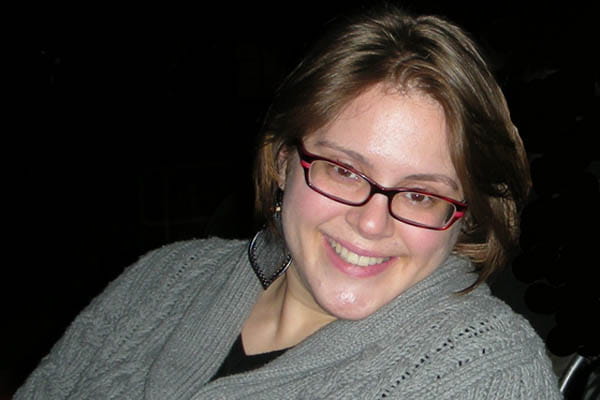Texas Transplant Chooses Drexel for its iSchool, Student Diversity and 'Progressive Way of Thinking'


Ask Rachel Magee how she came to be a doctoral candidate at the iSchool, College of Information Science and Technology and she’ll be the first to tell you with a laugh: “It was kind of weird.”
A born-and-raised Texan, Magee has spent the majority of her life in the southwest, earning a bachelor’s degree from the University of Texas at Austin in English and radio, television and film, and later a master’s in information resources and library science from the University of Arizona.
Magee has always been interested in both storytelling and technology. So when she decided to pursue her PhD in information studies, she decided to study at Drexel in Philadelphia, a city she had never visited before packing up to move to University City in 2010. Even so, she knew the East Coast school was right for her.
“I was really impressed that Drexel had an iSchool,” Magee said. “They tend to be progressive in terms of thinking about information and technology, in my opinion. Knowing that, and that it was a good school that has a diverse group of students, made me want [to go to] Drexel. Everything about what they were offering struck me as very supportive of their doctoral students.”
With little knowledge of the region, Magee moved into graduate housing to ease her transition to Philadelphia.
“It was sort of a hilarious experience because I met some of my best friends there,” Magee said.
These days, Magee is working on her dissertation, titled “Everyday life information ecologies and spectrums of technology use.” Magee said she considers herself a youth advocate, and that fuels much of her research in how young people use technology.
“There is research being done on young people. But what I see as an important thing to focus in is everyday life experiences—things that fall into hobbies and non-work and non-academic activities,” Magee said.
One of the concepts she’s focused on is the way young people conceptualize technology.
“Young people think of gaming systems as technology, but a lot of adults wouldn’t go to that as their definition of technology,” Magee said. “I’m interested in looking at what kids include. They can be things as broad as the Internet, but also gaming systems and gaming technology. I’m really looking at the topic in as broad a sense as possible.”
Another way Magee has approached the study of technology outside of professional realms has been to examine the way online dating is used.
“I think dating and romantic relationships are one of the most important things in most people’s lives, and it’s interesting that not much research has been done on that,” Magee said. “I worked with [fellow doctoral candidate] Christopher Mascaro and [assistant professor] Dr. Sean Goggins to look at success stories and how online daters themselves described success.”
She said the successful study, which was conducted during her first spring semester at Drexel, was a good indicator of the availability of resources and faculty would be during the duration of her time at the University.
“I have worked with so many of our faculty, and I think that’s a really uncommon experience [in academia],” Magee said. “They are all willing to sit down and talk to you about what you’re trying to learn about the world, and it’s a very welcoming scholarly community.”
In This Article
Drexel News is produced by
University Marketing and Communications.